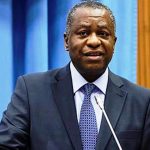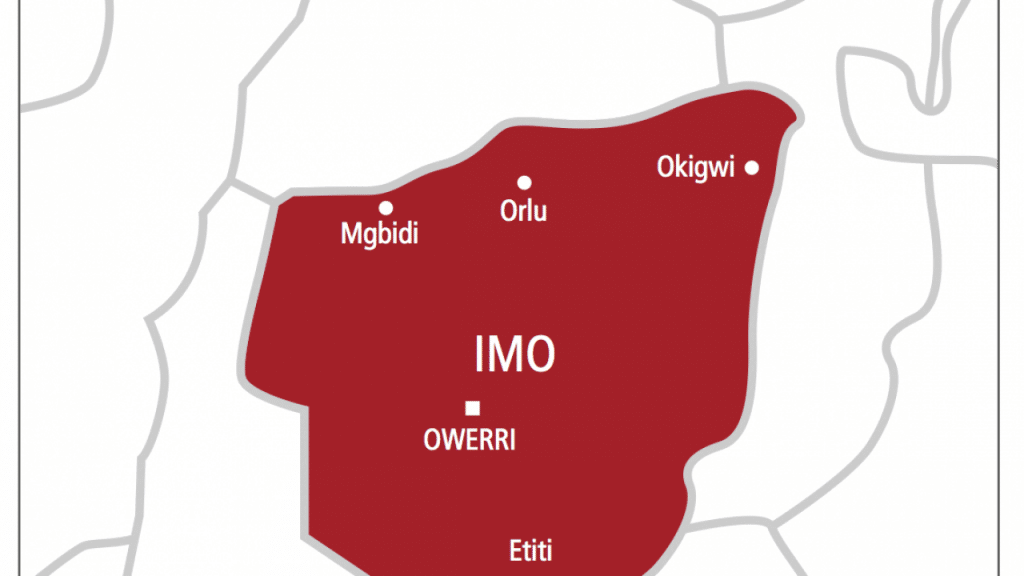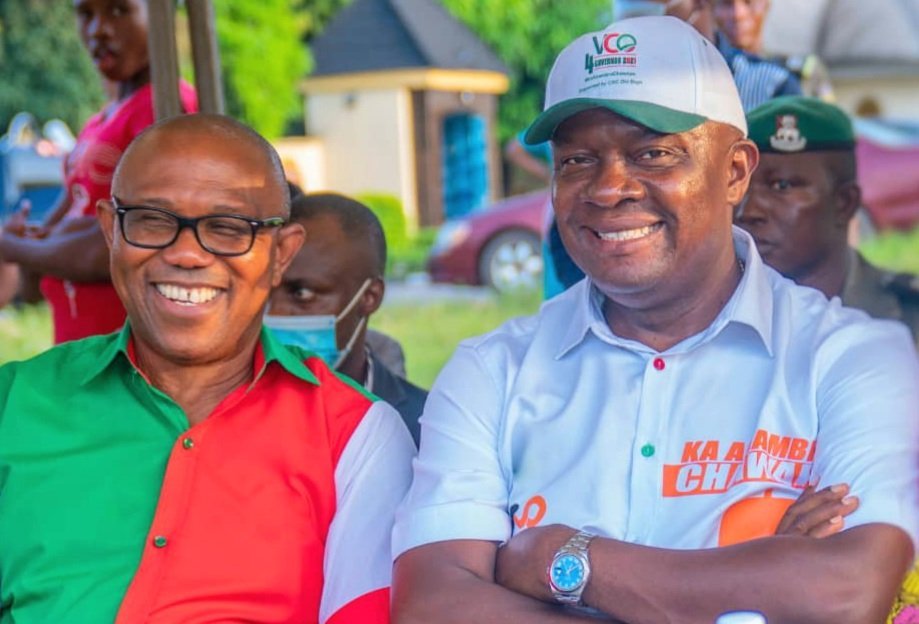Nigeria could spend N360bn monthly on subsidy, says World Bank
The Country Director, World Bank, Shubham Chaudhuri, says Nigeria’s decision to postpone the full deregulation of the downstream sector of the petroleum industry by 18 months may cost the country over N4tn in subsidy payments on petrol in 2022.
He said this when he led some executives of the bank on a courtesy visit to the head office of The PUNCH in Magboro, Ogun State on Thursday.
The World Bank country director, however, noted that while the World Bank could come up with advice on subsidy removal, its role was certainly not to dictate as it had no ability to do such.
Chaudhuri said, “With economics, really, you are not meant to make a political decision. What you are meant to do is to lay out what are the cons and consequences of different decisions.
“So that is what we are doing, we are just being very clear that this would come with a fiscal cost and the fiscal cost is the number, perhaps N4tn this year.”
He said despite the fact that the price of oil had gone up, the rise in global crude oil prices was not helping Nigeria that much.
Industry figures seen on Sunday showed that the price of Brent, the crude against which Nigeria’s oil is priced, was $118.11 per barrel at 5.06pm Nigerian time, as it traded at the same rate the preceding day.
On why the rising oil price was not helping Nigeria as anticipated, Chaudhuri said, “The reason is that the cost of the PMS subsidy is going up. So at $85 per barrel, the NNPC was projecting that the cost of the PMS subsidy will be around N180bn to N200bn per month. In January when crude oil prices had already gone up to $90, $93, it (subsidy) still went up to N250bn per month.
“Now you just mentioned it is $100 per barrel, our guess right now is that we are looking at N4tn or even more in the year 2022 as the cost of PMS subsidy.”
While making a calculation, he said, “You take 60 million litres a day, which the NNPC said is being evacuated from its depots, you take what is happening to the cost of imported world gas, price of gasoline, which is going up because crude oil price is going up.
“Right now, the differential I believe is about N200 per litre. So 60 million times N200 everyday is N12bn per day. Multiply that by 30, that is N360bn per month. Multiply that by 12, it will be somewhere about N4tn per year.
“And the N200bn, I think was when the oil price was around $93. So with oil prices at $100, the gap between N165 per litre and the (actual) cost of PMS is going to be more than N200 per litre.
“And that is the main reason we feel it is going to be a bit negative for Nigeria’s fiscal situation because oil production is not going up or may even continue to stall.”
Chaudhuri noted that the issue of subsidy removal was Nigeria’s choice, adding that there should be a consensus among the political elites that should be communicated and accepted by the public.
He explained that if there was no consensus earlier, it could be a time for an eclipse of discussion around what should be the choice for Nigeria, adding that it had to be a consensus.
He further noted that despite the rise in global oil prices due to the Russia/Ukraine war, this might not have a significant effect on the country’s oil earnings.
Chaudhuri said, “On the oil price, historically, in the last five decades, you will see that anytime crude oil price goes up, it helps economic activities in Nigeria, just because it becomes a source of free cash flow that people spend on a lot of things.
“Because the oil sector by itself is part of a relatively small part of the economy but the spillover is large. What was also the case in the last five decades was that high oil prices were good or the federation budget, finances, that is no longer true.
“In 2021, it was not true, and in 2022 it is not likely. We could be wrong, and we will be very happy to be wrong.”
The concerns raised by Chaudhuri were shared by stakeholders in the oil sector, for instance.
The National Public Relations Officer, Independent Petroleum Marketers Association of Nigeria, Chief Ukadike Chinedu, said subsidy on petrol might double this year due to the rise in crude oil prices.
Also, Sunday PUNCH exclusively reported that the projected oil estimate of the Federal Government of $62/barrel as contained in the 2022 Appropriation Bill had almost doubled going by the current global oil prices, which had been on the increase since the invasion of Ukraine by Russia.
In December 2021, the House of Representatives passed the 2022 budget of N17.126tn, as it also increased the oil benchmark to $62, as against the $52 dollars that was proposed by the executive.
The House had explained at the time that the increase in oil price was to reflect the current market values of the price of an oil barrel in the international market.
However, the current oil price of $118.11/barrel is almost a double of the $62/barrel benchmark that was set by the lawmakers.
“Of course, fuel subsidy could rise by 100 per cent when the current price of crude is benchmarked against the projection in the 2022 budget,” Ukadike had stated on Saturday.
He added, “This is because oil prices have been climbing higher almost on a daily basis since Russia invaded Ukraine and caused some level of instability in the global oil business.”
Ukadike stated that the gains which Nigeria would have made from the rising crude oil prices were being eroded by the increasing amount being spent on petrol subsidy.
This, he said, was why oil marketers had been urging the government to fix Nigeria’s refineries in order to effectively halt petrol subsidy and channel subsidy spendings to other sectors such as education, health, etc.
Last month, the President, Major General Muhammadu Buhari (retd.), wrote to the Senate, seeking the approval of a supplementary budget of N2.56tn.
Buhari had explained in his letter that the money was meant for subsidy on petroleum products from June to December 2022, as he requested the National Assembly to appropriate additional N2.56tn in the 2022 budget that was passed in December 2021.
Buhari had in August 2021 given his assent to the Petroleum Industry Act, a law that was meant to put an end to petrol subsidy in February this year.
But the Federal Government had to suspend plans to remove subsidy on petrol after labour unions threatened to ground the country if petrol subsidy was removed.
The Minister of Finance, Budget and National Planning, Zainab Ahmed, had stated that N443bn was the amount available to fund subsidy in 2022.
Ahmed, however, stated that the Nigerian National Petroleum Company Limited requested a total of N3tn from the Federal Government to fund fuel subsidy in 2022.
NNPC is the sole importer of petrol into Nigeria for more than four years and has been shouldering petrol subsidy costs on behalf of the Federal Government.
The government’s supplementary budget of N2.56tn for subsidy payment and the N443bn in the 2022 budget as approved in December, indicated that Nigeria would spend about N3tn on subsidy this year.
Aside from the huge fuel subsidy payments, another reason why Nigeria would not be making much from the rise in global oil prices, according to the Minister of State for Petroleum Resources, Chief Timipre Sylva, was because the country’s oil production was lower than the quota assigned it by OPEC
Data released on Wednesday by OPEC indicated that it raised Nigeria’s oil production quota from the 1.718 million barrels per day target in March to 1.735 million bpd in April 2022.
The organisation raised the country’s crude oil production quota following the conclusion of the 26th OPEC and non-OPEC Ministerial Meeting, held via videoconference on March 2, 2022.
But Nigeria has been missing its oil production quota lately. Early last month, OPEC increased Nigeria’s crude oil production target for the month of March despite the fact that the country had been missing its approved monthly output targets.
The PUNCH had exclusively reported that Nigeria missed its crude oil output target for January 2022, pumping 1.46 million barrels per day against a target of 1.683 million bpd as approved by OPEC.
But Sylva recently explained that Nigeria’s low oil production would not make the country take advantage of the rising crude oil prices.
He said, “In Nigeria right now, we are a net importer of petroleum products and when the prices of crude oil goes up it also affects the prices of petroleum products.
“So for us who are the net importers, it is also not very good for us. What we are saying is that if you are going to produce more and you get more dollars from your production, then it gives you more money for your imports.”
The minister, however, stated that efforts were ongoing to grow the country’s oil production.
When contacted, NNPC spokesperson, Garba-Deen Muhammad, requested that the information on subsidy be sent to him via WhatsApp. It was sent and he promised to revert but had yet to do so till this report was filed in.
Fuel subsidy may hit N6tn this year, says MOMAN
However, when asked to react to the projection of the World Bank that subsidy might rise to N4tn this year, the Executive Secretary, Major Oil Marketers Association of Nigeria, Clement Isong, stated that subsidy might hit N6tn in 2022 if the current factors causing the rise in global crude oil prices persist.
He said, “It (the projected N4tn) might be even higher. It is a function of how our exchange rate goes. It is a function of how the price of oil goes. We don’t anticipate that what is happening between Russia and Ukraine will last for too long.
“Hopefully if does not, the international prices of crude oil will come down and the availability of the product will go up, that is supply will improve. So hopefully the price of the finished product will come down.”
Isong added, “If we are lucky and if things are on our side, then it (subsidy) might be less. But if things are not on our side, if you do the current calculation as at today, based on all the numbers today, if things do not improve, it can easily reach N6tn.
“So it can easily reach N6tn. It is a function of the exchange rate and the international cost of refining products, among others. So the truth is that we simply need to wean the country of the subsidy. This again is because in all the countries around us in West Africa, there is no subsidy.”
FG may borrow more as cost of fuel subsidy increases – Experts
However, economic analysts and experts have said that the Federal Government may have to borrow more to cover the increasing cost of fuel subsidy.
An economist and a senior lecturer of Economics at the Pan Atlantic University, Dr Olalekan Aworinde, said that the cost of fuel subsidy might exceed N4tn in 2021, which would further have economic implications on the country.
He said, “I think it would likely be above N4tn because of the increase in the crude oil prices due to the invasion of Ukraine by Russia and the possibility that the supply of crude oil will be lower than its demand. It is going to have some economic implications.
On the economic implications, he said that state governments may not be able to pay salaries and the Federal Government may have to borrow more to cover fuel subsidy costs.
Aworinde said, “For instance, if the allocation to a state government is affected, the state government will not be able to pay salaries. This would further affect the economic ability of Nigerians, and even the output of goods and services in the country.
“Also, Federal Government may have to look elsewhere to be able to finance the subsidy. This implies that they will still have to go for debt. If they go for debt, the future generation will have to bear the burden of this debt. If you are borrowing for the purpose of consumption, there will no returns. If it’s not generating any returns for the government, we are going to have a situation of debt overhang, with the country having to struggle to pay back the debts.”
Also, an economist and CEO of Centre for the Promotion of Private Enterprise, Dr Muda Yusuf, also said that there would be a surge in the costs of petrol import and subsidy bill.
He said, “We will see an upsurge in petrol import and subsidy bill in coming months as the landing cost of petrol increases on the back of the rise in crude oil price.
“Regrettably, we remain a major importer of petroleum products and typically when oil prices increase, petrol import bill and subsidy payments also increase. Only recently the NNPC made a request of N3trillion for petrol subsidy. With current turn of events, the subsidy bill would even be higher, creating serious fiscal challenge for government at all levels. These of course have serious implications for the budget and government finances.”
He added that there would be a higher fiscal deficit, increased debt profile, and higher debt service.
Yusuf said, “Ideally, high oil price increase should be good news for oil producing countries. It typically impacts positively on foreign exchange earnings, foreign reserves and government revenue. But Nigeria is a peculiar case because of the dysfunctional policies and regulations in oil and gas sector.
“It is an irony that crude oil price increase emasculates the Nigeria economy, rather than benefit it. This is because of the escalating petroleum products and subsidy bill. Consequently, fiscal deficit will be higher than projected, debt profile will increase, debt service commitment will rise and government borrowing will intensify. This may worsen an already weak fiscal space.
“With this scenario, we are likely to see an increased credit to government by the Central Bank of Nigeria, which will further increase money supply leading to higher inflation and further depreciation in the exchange rate. These are the regrettable fiscal trajectories of the current developments. We are likely to see a much more fiscal pressure on all levels of government.”





2 Comments